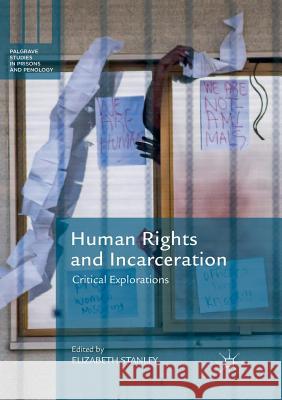Human Rights and Incarceration: Critical Explorations » książka
topmenu
Human Rights and Incarceration: Critical Explorations
ISBN-13: 9783030070281 / Angielski / Miękka / 2019 / 311 str.
Kategorie:
Kategorie BISAC:
Wydawca:
Palgrave MacMillan
Seria wydawnicza:
Język:
Angielski
ISBN-13:
9783030070281
Rok wydania:
2019
Wydanie:
Softcover Repri
Numer serii:
000468545
Ilość stron:
311
Waga:
0.39 kg
Wymiary:
21.01 x 14.81 x 1.75
Oprawa:
Miękka
Wolumenów:
01
Dodatkowe informacje:
Wydanie ilustrowane











